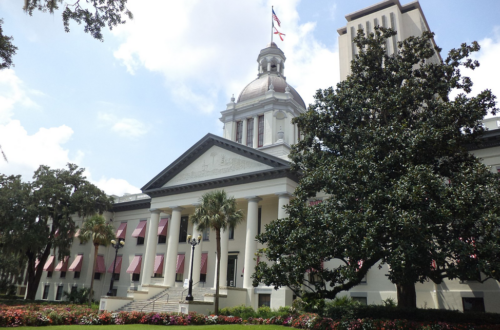In part of an agenda to tackle education and diversity, Florida Gov. Ron DeSantis is attacking gender-affirming care at public Florida universities.
Gender-affirming care may involve a variety of social, non-medical transitions or surgery for those who are transgender or nonbinary. It has been recognized as the best and only approach to solving transgender healthcare issues, including severe mental health risks, particularly for transgender or nonbinary youth and adolescents.
On Jan. 11, Chris Spencer, the Director of the Office of Policy and Budget for DeSantis, requested information from Florida’s public universities regarding gender-affirming care. The request was sent to the chairs of universities’ boards of trustees, stating the purpose for the request as the administration’s duty to govern institutional resources and protect the taxpayers’ interests.
The invasive request for this data didn’t include much information explaining the purpose, and the administration expects the data to be returned by Feb. 10.
This memo requires information about whether students have had gender reassignment surgery, and whether they’ve used hormone therapy within the past five years. It also requires information about the ages and number of students who received treatment from public universities. Finally, it explicitly mentions that responses must not include identifiable personal information.
DeSantis has a history of limiting LGBTQ+ rights through discrimination. The state may expect a cut in funding to public schools that provide healthcare services to transgender and nonbinary individuals should these policies move forward.
Political motivations in Florida
Spencer’s memo is not the first, only, or last attack on the LGBTQ+ community. Last year the Florida House passed the “Don’t Say Gay or Trans” bill, officially called HB 1557, prohibiting students and educators from discussing the LGBTQ+ community.
The bill allows DeSantis’s administration to pursue the Stop Wrongs Against Our Kids and Employees (“Stop Woke”) agenda, involving a demand for information from Florida’s public universities about transgender individuals and the school’s healthcare services for trans students.
It also permits DeSantis to restrict books, classroom discussions and the information taught in public school courses, specifically race and gender issues, to advance a conservative political agenda and exert control over what students learn. Students and educators have already taken legal action, filing a lawsuit to challenge the discriminatory laws and memos.
DeSantis then enacted laws preventing children from receiving gender-affirming care treatments, and banning Medicaid from covering gender-affirming care. These attacks on trans rights appear to be part of a larger political agenda.
Recently, the DeSantis administration has sent other similar memos to Florida’s public universities concerning information about diversity, equity and inclusion programs and spending as the administration plans to eliminate all programs by cutting funding.
“Florida schools are becoming the next battleground for DeSantis,” said Stephen Gaskill, immediate past president of the Florida LGBTQ+ Democratic Caucus.
From elementary schools to universities, DeSantis’ policies will continue to negatively impact students.
Effects of banning transgender care
The effects of the expected attack on the LGBTQ+ community will be detrimental to Florida youth and higher education students.
Cutting funding or outright banning gender-affirming care services puts Florida’s youth and students at risk for political gain. In the future, as DeSantis continues to threaten the credibility of Florida’s public universities, the state will start to lose students. Families and students with the abilities and resources to leave the state likely will.
Protests have already erupted from students at the University of South Florida, particularly the Trans+ Student Union, following the request for data about transgender and nonbinary health services.
Several of Florida’s public universities have previously expressed their commitment to providing healthcare to transgender and nonbinary students.
As worries about cuts to funding or elimination of all LGBTQ+ services loom, several local and national LGBTQ+ organizations urge Florida public universities to continue to provide services.
“Universities, physicians, and healthcare providers need to remember their goal is to serve the people—getting caught up in politics is not helpful,” Gaskill said.
As DeSantis attempts to reconstruct schools after his own political agenda, universities must push back against the administration and continue to provide essential healthcare services for all.
Check out other recent articles from the Florida Political Review here.
Featured image: Trans rights protest. (Unmodified photo by Ted Eytan used under a Creative Commons license. http://bit.ly/3HekpMu).





